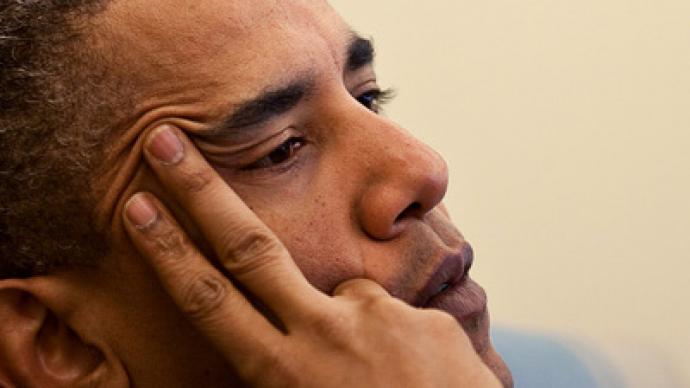Record US deficit to leave many hopeless

Obama’s new budget not only hinders the poor, it sets the deficit at its biggest share of the economy since 1945.
The new proposed budget the administration has put before Congress calls for $1.1 trillion in deficit reductions over the next 10 years; however it also foresees a deficit of $1.65 trillion this year at around 11 percent of the overall economy. Not since World War II has the US federal deficit been so great, and most economists fear it could still get worse. The ever increasing deficit can discourage investors, making US investments much riskier. With greater risks investors demand higher returns, discouraging barrowing and causing interest rates on mortgages and other loans to rise. As barrowing costs increase and debts are weighed down by increased interests, spending would also increase within the already struggling economy. Costs to businesses would also rise, thus jobs continue to be scarce, real estate fails to recover and consumer confidence may dive further. With higher rates, the US government itself may find it hard to pay debt payments. Rates may increase the deabt and make it hard for the government to continue typical operations. Overall, the record deficit is much greater than a mere number. It has the potential to impact the whole confidence of the market; leaving many poor and middle class Americans in need of assistance.However, they are unlikely to receive any aid. The new budget proposal brings about vast reduction in social programs. Some of the items on Obama’s chopping block include; cuts to Low-income heating assistance by half, Community Development Block Grants used to aid local governments are to be cut by around $300 million. Local municipal governments struggling with their own debts, dependant on the federal system will lose additional funding and be unable to help their residents. The forestry service will be loose funds, farms will see a steep reduction in agricultural subsidies and the Environmental Protection Agency water treatment fund for local governments will be forced to cut back.The proposal aims to curb the deficit over a number of years by targeting the poor and working classes, and could even eventually tackle entitlement programs like Medicare and Social Security. Gerald Celente, the director of the Trends Research Institute in New York said Americans should be very concerned about Obama’s budget and the rising deficit, just as they should have been years ago. Obama once claimed he could find $2 trillion in savings, but instead he is bankrupting the government, argued Celente. His administration is putting the country deeper in debt and placing the burden on the shoulders of the American people.“It’s all a lie and a scam,” he added. “It’s going to be more of the same, putting the country deeper into debt.”Inflation is rising worldwide; the US is devaluing its currency and flooding market with dollars. The flood of cheap money is driving up prices on everything and placing a greater burden on the people.“They are talking about budget cuts, but how about the trillions of dollars that were funneled into those great too big to fail banks and financial institutions?” Celente commented. “They are taking the money from the people and giving it to the too bigs.” People should be concerned, he explained. The budget calls for cuts to programs that impact people directly, but neglect to address massive areas where cuts are both possible and needed; including US defense spending.Richard Wolff, a professor emeritus of economics at the University of Massachusetts explained the problem is much bigger than the Obama budget; the problem is innate to US politics and both major political parties. “The basic picture, which Republicans and Democrats alike support, is a budget that is going to be basically $1.5 trillion dollars short. The government is going to spend that money. The Republicans and Democrats agree on that,” he said. “The larger picture no body addresses, no body debates.”He explained the greater economy is ignored by both parties, as they agree to ignore that which is too hard to address – including the prospects of escalating debt which will affect generations to come. “Neither of them is questioning the enormity of this deficit,” he said.












